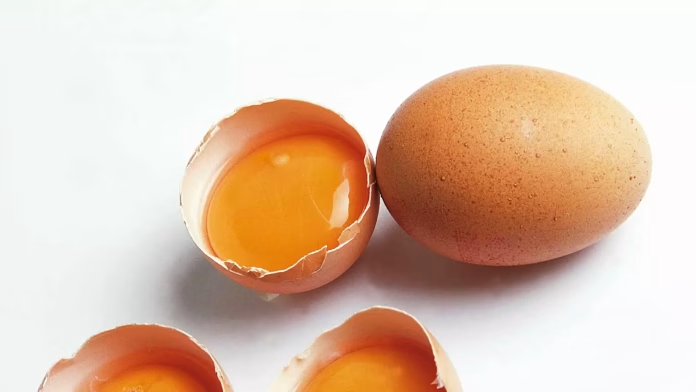Eggs are a staple food in many households, and they come in a variety of colors, including white, brown, and even blue. However, have you ever noticed that the color of the egg yolk can also vary? Some egg yolks are bright yellow, while others are pale yellow or even orange.
Many people believe that the color of the egg yolk is an indication of the egg’s nutritional value, taste, or even the chicken’s living conditions. In this article, we will investigate whether the color of egg yolks truly matters.
What causes the color of egg yolks?
The color of the egg yolk is primarily determined by the pigments in the chicken’s feed. The most common pigment is xanthophylls, which is found in corn, alfalfa, and other yellow plants. When chickens consume feed rich in xanthophylls, the pigment is deposited in the yolk, giving it a vibrant yellow or orange color.
On the other hand, if the chicken’s diet is low in xanthophylls, the egg yolk will be paler in color. In some cases, chicken feed may contain artificial pigments to enhance the color of the egg yolk.
The nutritional value of egg yolks
Egg yolks are a rich source of essential nutrients, including protein, vitamin D, vitamin B12, and choline. However, some people believe that the color of the egg yolk is an indication of its nutritional value.
According to nutrition experts, there is no significant nutritional difference between a pale yellow egg yolk and a vibrant orange one. The nutritional value of an egg yolk is primarily determined by the chicken’s diet and living conditions.
The impact of diet on egg yolk color
As mentioned earlier, the color of the egg yolk is primarily determined by the chicken’s diet. Chickens that are raised on a diet rich in xanthophylls, such as corn, alfalfa, or marigold petals, will produce eggs with vibrant orange or yellow yolks.
On the other hand, chickens that are raised on a diet low in xanthophylls, such as wheat or barley, will produce eggs with paler yolks. Some chicken farmers also add artificial pigments to the chicken feed to enhance the color of the egg yolks.
However, the color of the egg yolk can also vary depending on the season. During the winter months, when there is less sunlight, the amount of xanthophylls in the chicken’s diet may decrease, resulting in paler egg yolks.
The taste difference between different egg yolk colors
Many people believe that eggs with vibrant orange yolks taste better than those with pale yellow yolks. However, according to experts, there is no significant difference in taste between eggs with different yolk colors.
The taste of an egg is primarily determined by its freshness, cooking method, and the chicken’s diet and living conditions. For example, eggs from chickens that are allowed to roam freely and eat a varied diet may taste better than eggs from chickens raised in cages and fed a monotonous diet.
The verdict: Does egg yolk color matter?
According to Dr. Kristina Wade, a poultry scientist and professor at the University of Georgia, the color of an egg yolk is determined by the diet of the hen that laid it. Hens that consume a diet rich in yellow and orange pigments such as corn, alfalfa, and marigold petals produce yolks that are deep yellow or orange in color. On the other hand, hens that consume a diet low in these pigments produce yolks that are pale yellow.
Dr. Wade explains that the nutritional value of an egg does not depend on the color of its yolk. “The nutritional composition of an egg is the same regardless of the color of the yolk,” she says. “Egg yolks are a good source of protein, fat-soluble vitamins, and minerals, regardless of their color.”
However, some studies suggest that eggs from hens that are allowed to roam and forage for food have a higher nutritional value compared to eggs from hens that are kept in cages. This is because free-range hens have access to a wider range of nutrients, which can result in eggs with more omega-3 fatty acids, vitamin E, and beta-carotene. Therefore, the color of an egg yolk can be an indicator of the hen’s diet and living conditions, but not necessarily its nutritional value.
Our Verdict:
The color of an egg yolk does not affect its nutritional value. Egg yolks are a good source of protein, fat-soluble vitamins, and minerals regardless of their color. The color of an egg yolk is determined by the diet of the hen that laid it, and hens that consume a diet rich in yellow and orange pigments produce yolks that are deep yellow or orange in color.
However, the nutritional value of an egg is not dependent on the color of its yolk, but rather the diet and living conditions of the hen that laid it.





